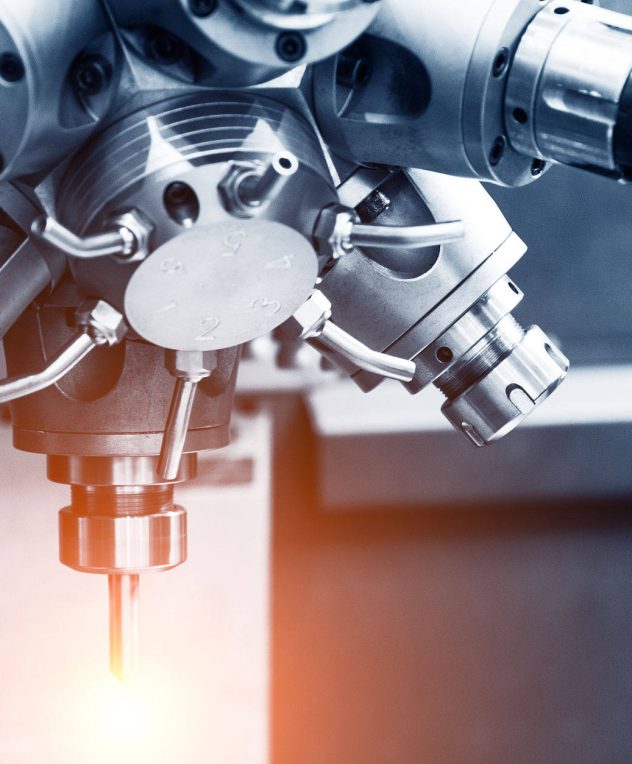
Industry cooperation and competition strategy of precision tool manufacturing
Precision tool manufacturing refers to the industry that uses high-precision machinery, electronics, optics and other technologies to produce tools and equipment that can meet specific functional and performance requirements. Precision tool manufacturing has a wide range of applications in aerospace, automotive, medical, energy and other fields, and is an important force to promote scientific and technological progress and social development.
With the continuous innovation of science and technology and the constant changes of the market, precision tool manufacturing is also facing new development trends and challenges. Among them, intelligence, automation and digitization are the three main directions. These directions put forward new requirements and opportunities for industry cooperation and competition in precision tool manufacturing, requiring precision tool manufacturing enterprises to formulate reasonable cooperation and competition strategies to achieve win-win and development.
Precision tool manufacturing refers to the industry that uses high-precision machinery, electronics, optics and other technologies to produce tools and equipment that can meet specific functional and performance requirements. Precision tool manufacturing has a wide range of applications in aerospace, automotive, medical, energy and other fields, and is an important force to promote scientific and technological progress and social development.
With the continuous innovation of science and technology and the constant changes of the market, precision tool manufacturing is also facing new development trends and challenges. Among them, intelligence, automation and digitization are the three main directions. These directions put forward new requirements and opportunities for industry cooperation and competition in precision tool manufacturing, requiring precision tool manufacturing enterprises to formulate reasonable cooperation and competition strategies to achieve win-win and development.
In order to discuss the industry cooperation and competition strategy of precision tool manufacturing, this paper will elaborate from the following three aspects: cooperation mode, competitive advantage and competition rules.
“Cooperation mode”
Cooperation mode refers to the ways and means for precision tool manufacturing enterprises to cooperate inside and outside the industry. In order to cope with the diverse and individual needs of the market, as well as the complex and specialized requirements of technology, precision tool manufacturers need to cooperate with other companies to share and complement resources and improve product quality and value. A typical cooperation model is to use platform thinking to establish an open innovation platform and attract all participants (such as suppliers, customers, research institutions, etc.) to participate in product design, development, testing, and promotion to form innovation ecosystem.

competitive advantage
Competitive advantage refers to the advantages and characteristics that precision tool manufacturing enterprises have when they compete inside and outside the industry. In order to cope with the fierce competition and rapid changes in the market, as well as the continuous updating and iteration of technology, precision tool manufacturing enterprises need to establish their own competitive advantages, realize product differentiation and leadership, and enhance brand awareness and influence. A typical competitive advantage is to use core technology to create core products, form core barriers, maintain a leading position in technology, and through continuous innovation, continuously expand technological advantages and transform them into market advantages.

competition rules
Competition rules refer to the rules and principles that precision tool manufacturing enterprises follow when they compete inside and outside the industry. In order to maintain the healthy development and fair competition of the industry, as well as protect their legitimate rights and social responsibilities, precision tool manufacturing companies need to abide by relevant laws, regulations and industry standards to achieve honest and compliant operations. A typical competition rule is to use intellectual property rights to protect one’s own innovations, respect the intellectual property rights of others, and avoid infringement and disputes. At the same time, it is also necessary to actively participate in the self-discipline and supervision of the industry to maintain the reputation and image of the industry.
Competition rules refer to the rules and principles that precision tool manufacturing enterprises follow when they compete inside and outside the industry. In order to maintain the healthy development and fair competition of the industry, as well as protect their legitimate rights and social responsibilities, precision tool manufacturing companies need to abide by relevant laws, regulations and industry standards to achieve honest and compliant operations. A typical competition rule is to use intellectual property rights to protect one’s own innovations, respect the intellectual property rights of others, and avoid infringement and disputes. At the same time, it is also necessary to actively participate in the self-discipline and supervision of the industry to maintain the reputation and image of the industry.
In conclusion, the industrial cooperation and competition strategy of precision tool manufacturing shows the important role and value of cooperation and competition in promoting the development of precision tool manufacturing. However, in the process of realizing cooperation and competition, there are also some challenges and difficulties, which need to be solved by strengthening communication and coordination, optimizing benefit distribution, and strengthening risk prevention. Only by continuous cooperation and competition can we grasp the opportunities of development and win the future.







Leave a Reply